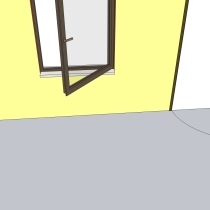Meditation is an excellent tool to help one stop thinking about the future.
Thinking about the future and the past are two of the main things that can cause stress and anxiety in peoples lives. But, as harmful as it may be for people, it can be even harder to not do it.
Almost everyone goes through times when they find themselves worrying about things that may happen in the future, things that may be completely out of their control, and it is just very difficult sometimes to stop doing this.
Meditation, though, is a great tool that can help calm your mind down and focus it on the present moment. Preventing it from going wild and uncontrollably think and worry and stress about the future.
Meditation can help you increase your focus and awareness of the present, it can help you better take control over your mind, and the steam of thoughts in it, including those fears and thoughts about future events.
One reason for this back pain may be due to weak back muscles that are involved in sitting straight.
When people first start meditation practices, they may not be used to sitting up straight for long periods of time. Even sitting for short periods of time may cause slight back pain.
Once you progress with your meditation practice, the muscles involved in sitting with a straight back will get stronger, resulting in the ability to sit for longer in meditation without suffering from the back pain and discomfort.
Another positive side effect is that you may have improved posture in your day-to-day life as well. The reason for this is that when you meditate, it's important to sit with a straight back, and not to be hunched. You are actively and mindfully training and adjusting your posture and making sure you are sitting with a straight back. This posture training does not benefit only your meditation sessions, but your daily life as well. You will start to notice that you are being more mindful of your posture. As you progress, you will start to have better posture without even trying or forcing it, it will just be natural.
One way to help strengthen your back muscles to prevent the pain and discomfort is to include some physical activities in to your schedule, such as weight training or yoga. If your goal is just to be able to sit longer in meditation without experiencing the back pain, you won't need to lift very heavy weights or go to any extremes. Just being physically active and strengthening the back and surrounding muscles should be enough.
Don't skip your core!
Your core muscles are another important element in having good posture, this goes for sitting and meditating as well. Try to include some core exercises to help ensure that you are strengthening the muscles involved in keeping a good posture. This can really help make the pain and discomfort go away.
Meditation can help reduce stress by helping you clear your mind of the things that cause you that stress.
It does this by helping you ease into a state of calmness.
Depending on how you choose to meditate, and what type of meditation you choose to do, you will probably be following your breath and allowing your thoughts to enter your mind, and to calmly exit it as well.
The reason meditation helps with reducing stress and anxiety is because it causes you to focus on the here and now, instead of the day you had, the things that happened throughout your day, things that you are worried about, and thoughts about the future. All you are doing it following your breath, a sound, or what ever else the meditation follows, and you are observing your thoughts that show up in your mind, without judging them or getting frustrated or upset.
During meditation, thoughts will show up, but it's important to not fight them, to not get upset or frustrated, and definitely to not judge them or yourself. Our minds are full of thoughts, especially when we are stressed or are experiencing anxiety. It only makes sense that our minds will be full of thoughts.
The key with clearing your mind and reducing stress with meditation is to not fight these thoughts. Let them show up, observe them, and let them go, just as they came.
It's the moment we get upset and start fighting our thoughts that we lose control over our minds and over the state of calmness we are in. Accepting these thoughts, what ever they may be, and letting they go is a key element in clearing your mind, and reducing stress and anxiety.
This is a difficult feat to achieve, but with consistent practice, acceptance of your thoughts, and patience, you can use meditation as a tool to help you reduce stress, anxiety, depression, and other negative emotions.
On top of that, you will be able to use it to connect more with yourself, and with others.
It's also important to know what to expect. Most of us live our whole lives with our minds being allowed to conjure up what ever thought it wants. Allowing it to cause us stress, anxiety, depression, and a lot of other negative emotions and feelings. We allowed our minds to do this our whole life, it has grown accustomed to it. Telling it now, after all this time, that it's time to change that habit, is not easy and will require work. It will require time and patience.
So don't expect of yourself to be able to master meditation in a short period of time, and don't expect miracles, because this is a practice that is going to take a while to get used to, it will take a while to retrain your mind, and it will take a while before you can notice that your mind is clearer, and that you are reaping the benefits of meditation.
With that said, it is very well worth the time and effort, as meditation can be the perfect tool for helping reduce stress and anxiety.







